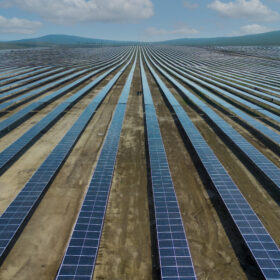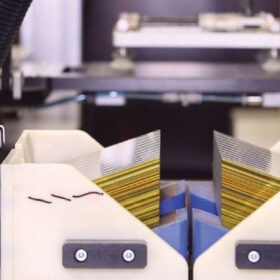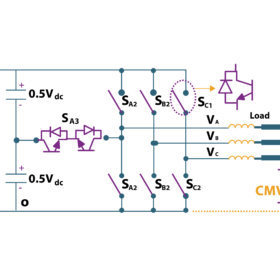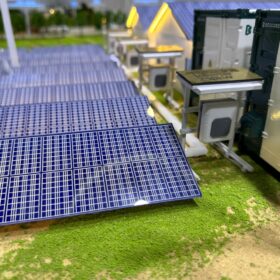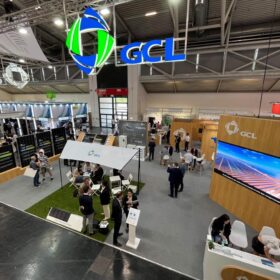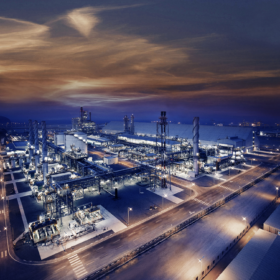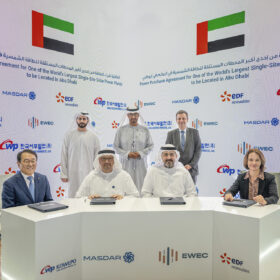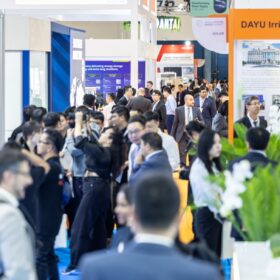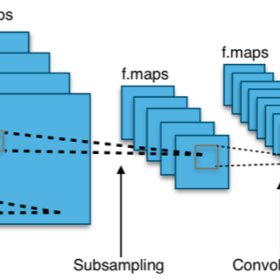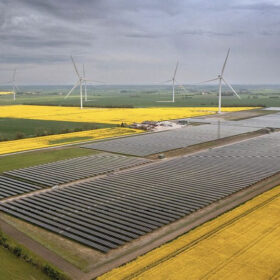Masdar raises $1 billion with second green bond
Abu Dhabi-based Masdar has raised $1 billion through a new bond issuance. It says the investment will fund equity commitments on new greenfield projects, several of which are in developing economies.
A gulf between PV ambition and testing facilities
Though it already hosts several of the world’s largest PV installations, the Middle East and North Africa (MENA) region’s solar industry is still young, with limited local infrastructure and expertise. Project developers are learning quickly that building PV in harsh desert environments requires a careful eye on quality. New testing laboratories are looking to meet demand.
New pulse width modulation tech to reduce switching losses in three-phase inverters
Scientists in the Emirates have conceived a new space vector pulse width modulation method that reportedly reduces switching losses and increase efficiency in three-phase photovoltaic inverters. The proposed technique was found to have a higher efficiency, while providng lower common-mode voltage, leakage current and total harmonic distortion compared to traditional pulse width modulation approaches.
DEWA unveils new method to measure current-voltage curves in PV systems
A group of scientists from the UAE-based energy utility has developed a new method to conduct I-V curve measurements without transporting the solar modules to laboratories for detailed analysis. The proposed Suns-Vmp approach reportedly offers a “very low” average root mean square error between the simulated and the real I-V curves.
GCL Tech, Mubadala to open polysilicon factory in UAE
Chinese polysilicon maker GCL Tech says it is partnering with Emirati state-owned Mubadala Investment Co. to build the Middle East’s first polysilicon factory in the United Arab Emirates.
The Hydrogen Stream: Adnoc delivers low-carbon ammonia to Japan
Adnoc has delivered the world’s first certified bulk commercial shipment of low-carbon ammonia to a client in Japan, while Plug Power has agreed to supply a 3 GW electrolyzer in Australia.
EDF, KOWEPO, Masdar to develop 1.5 GW of solar in UAE
France’s EDF Renewables, South Korea’s Korea Western Power Co. (KOWEPO), and Abu Dhabi Future Energy Co. (Masdar) have agreed to jointly design, finance, build and operate a 1.5 GW solar project in the United Arab Emirates, under a power purchase agreement (PPA) with Emirates Water and Electricity Co. (EWEC).
Key takeaways from Abu Dhabi’s World Future Energy Summit
The 2024 edition of the Middle East’s most important solar event hosted a higher number of exhibitors and visitors, even though the heaviest rainfall seen in decades hit the United Arab Emirates throughout the first day of the trade show. Nonetheless, the event clearly showed that large-scale PV projects still dominate in the UAE market.
PV module fault detection technique based on convolutional neural network
An international research team has used the convolutional neural network (CNN) deep learning algorithm to identify faults in solar panels. Its work showed the proposed technique has a high degree of accuracy, especially if combined with transfer learning models.
Attica-Crete leg of Mediterranean super grid due mid 2025
Greece has grand plans for an interconnector network that runs from the Middle East through to the heart of Europe. pv magazine examines the latest developments on the road to a Mediterranean super grid and what it might mean for the regions involved.
